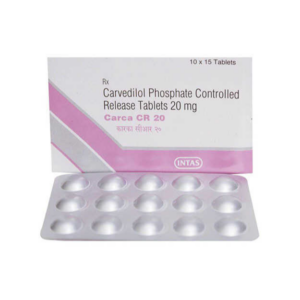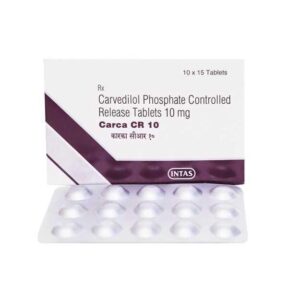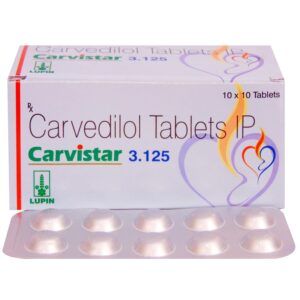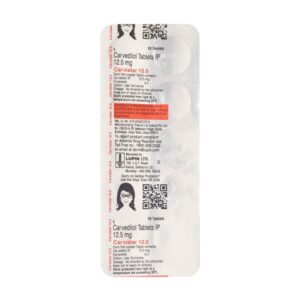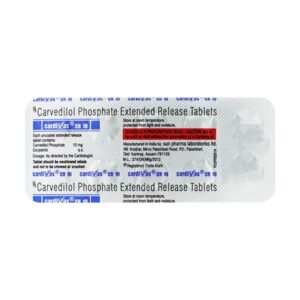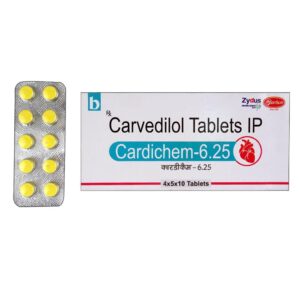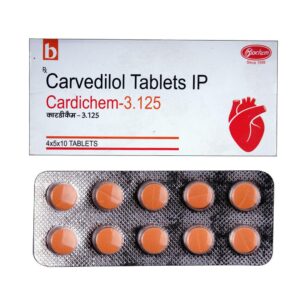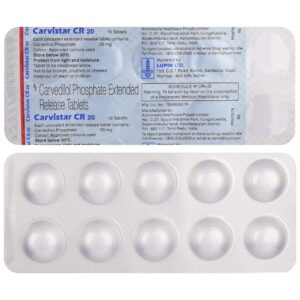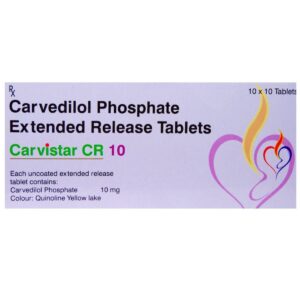CARVEDILOL
CARVEDILOL: Carvedilol is a medication commonly used for the treatment of high blood pressure (hypertension), heart failure, and to reduce the risk of death after a heart attack. It belongs to a class of drugs known as beta-blockers.
The mechanism of action of carvedilol involves blocking certain receptors in the body called beta-adrenergic receptors. By doing so, it helps to reduce the heart rate, relaxes blood vessels, and lowers blood pressure. Additionally, carvedilol also has alpha-blocking effects, which further aids in the relaxation of blood vessels.
The dose of carvedilol can vary depending on the condition being treated. For hypertension, the usual starting dose is 6.25 milligrams taken orally twice daily. This dose can be gradually increased over time to a maximum of 25 milligrams twice daily as needed. For heart failure, the starting dose is usually lower (3.125 milligrams twice daily) and may be increased gradually. The exact dosage should be determined by a healthcare professional based on individual factors.
Common side effects of carvedilol include dizziness, fatigue, low blood pressure, slow heart rate, and shortness of breath. These side effects are generally mild and may improve over time as the body adjusts to the medication. However, if these side effects persist or worsen, it is important to consult a healthcare provider.
Rare but serious side effects may also occur, including severe allergic reactions, congestive heart failure worsening, liver problems, and bronchospasm in people with asthma or chronic obstructive pulmonary disease (COPD). If any of these serious side effects occur, immediate medical attention should be sought.
It is important to note that carvedilol should not be abruptly discontinued, as it can lead to a worsening of the condition being treated or cause other complications. The medication should be tapered off under the guidance of a healthcare professional.
Overall, carvedilol is a widely used medication that effectively helps to manage high blood pressure, heart failure, and reduce the risk of heart attack in certain individuals. However, it is essential to follow the prescribed dosage and consult a healthcare provider if any concerns or side effects arise.

